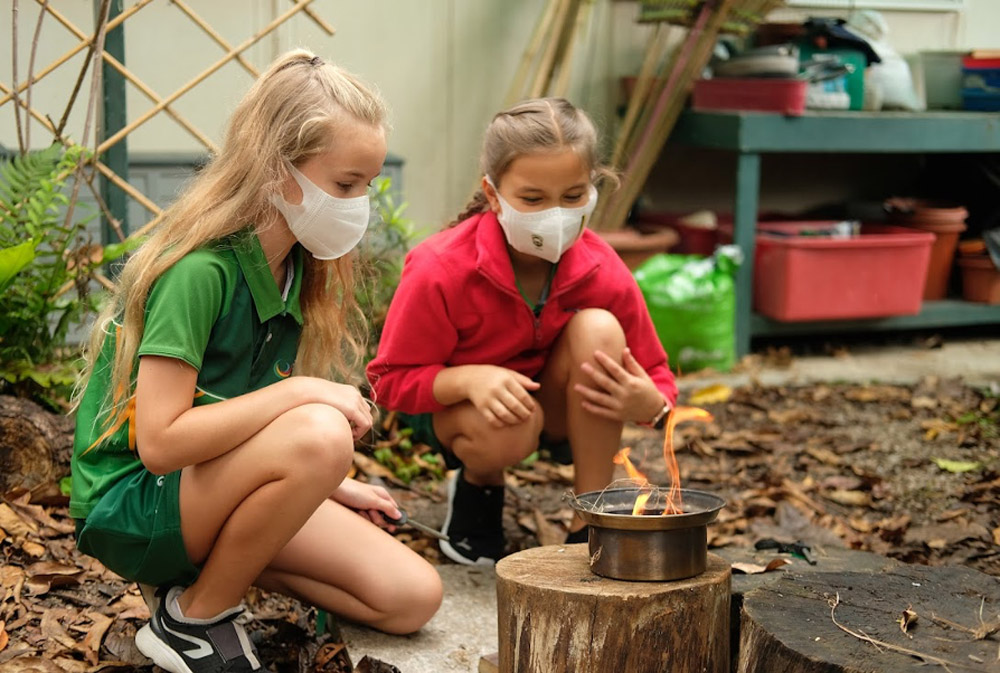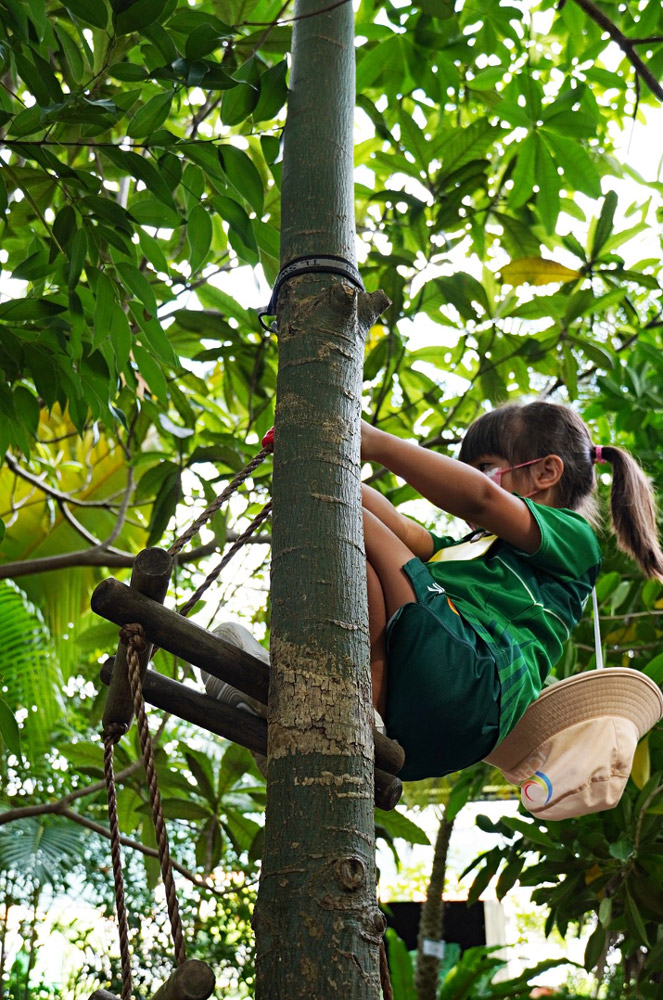
Students were actively involved in planting the forest. (Photo source: International College Hong Kong, Hong Lok Yuen)
--------------------------------------------------------------
“Unless we are willing to encourage our children to reconnect with and appreciate the natural world, we can’t expect them to help protect and care for it.”
This quote from the Canadian scientist and broadcaster, David Suzuki, encapsulates our belief at International College Hong Kong, Hong Lok Yuen (ICHK HLY) that you cannot embed sustainable living into students' lives without first embedding a love and knowledge of our natural world.
ICHK HLY is a kindergarten and primary school situated in the New Territories of Hong Kong. Over the last few years, ICHK HLY has shown commitment to its vision of becoming a leader in outdoor learning by developing our forest schools program and becoming the first Forest Schools Leadership Centre in Hong Kong. Blessed with a large field and outdoor areas, including a woods area where students can practice outdoor skills such as fire lighting, tree climbing, and slacklining, we knew that we could do even more to connect our students with the natural world.

Our woods area allows students to practice outdoor skills. (Photo source: International College Hong Kong, Hong Lok Yuen)
Seeking to build upon our work in connecting students with the natural world, we made the decision to partner with the local, nongovernment organization, Nature Maker Labs, to become the first school in Hong Kong to plant a Miyawaki forest. The Miyawaki method of planting is designed to promote the speed of growth via the dense planting of trees. This means that the forest will have reached maturity in approximately four to five years.
A vital component of this project was to provide transferability of knowledge for students. Despite having a population density of 7,140 per km2, 70 percent of Hong Kong is still rural. Our aim is that, as children grow and explore more of the undeveloped areas of Hong Kong, they will come across the same plants that have grown to love on the school grounds. We, therefore, made sure that all over 300 trees planted were indigenous to Hong Kong. By engendering a love of local flora and fauna at this early age, it is our hope that our students will flourish into adults who are passionate advocates for sustainability in Hong Kong and beyond.
From the outset, it was important for us to engage the students as actively as possible in the process. Prior to planting, all students from Grades 1 to 6 were involved in designing and making tree tags for the individual trees. Students then had one of the trees allocated to them to care for. In workshops prior to the planting, students were engaged in finding out about their tree and the conditions it required to flourish.

The students and staff were involved in planting the forest, and workshops were held with students to teach them about the Miyawaki forest method and their role in helping the trees to grow via mulching, weeding, and monitoring of the trees’ growth. Workshops were held to introduce indigenous tree species to the students.
Students are actively involved in measuring and maintaining their trees. Students also take baseline data on the temperature on the field to see whether as the forest grew it would have a cooling effect. Unfortunately, due to COVID, the school was closed to students for three months. When students returned, they were enthusiastic to see the growth that had occurred during the break and actively resumed their management of the forest. This enthusiasm was reinforced by their work in art lessons, creating a sensory path through the forest.
With the planting of a growing and evolving ecosystem, the project provides a deep learning context for students for decades to come. The initial phase has focused on the planting, maintenance, and growth of the forest. This phase is expected to last three to four years. Once the forest has become more established, the focus will be on tracking and recording the developing ecosystem that has been created. Students will track the incoming insects, birds, and other creatures that the forest will attract. They will also continue to observe the impact on the temperature that will be created by the new ecosystem.
Importantly, the development of a sensory trail through the forest ensures that the forest becomes a place where students can enter and reconnect with the natural world. Combined with the existing woods area, children have multiple opportunities to connect with nature on site, learning about, learning through, and learning in nature on a daily basis.
The next addition to our current outdoor areas will be an organic farm. This will be a community area that will allow families to come up and be part of the school’s focus on sustainability by increasing their understanding of food production. By including the whole community, we will continue to deepen the love of nature and sustainability as central to the mission and values of the school.
--------------------------------------------------------------
Derek Pinchbeck is the head of school at ICHK Hong Lok Yuen.
Website: https://ichkhly.edu.hk/